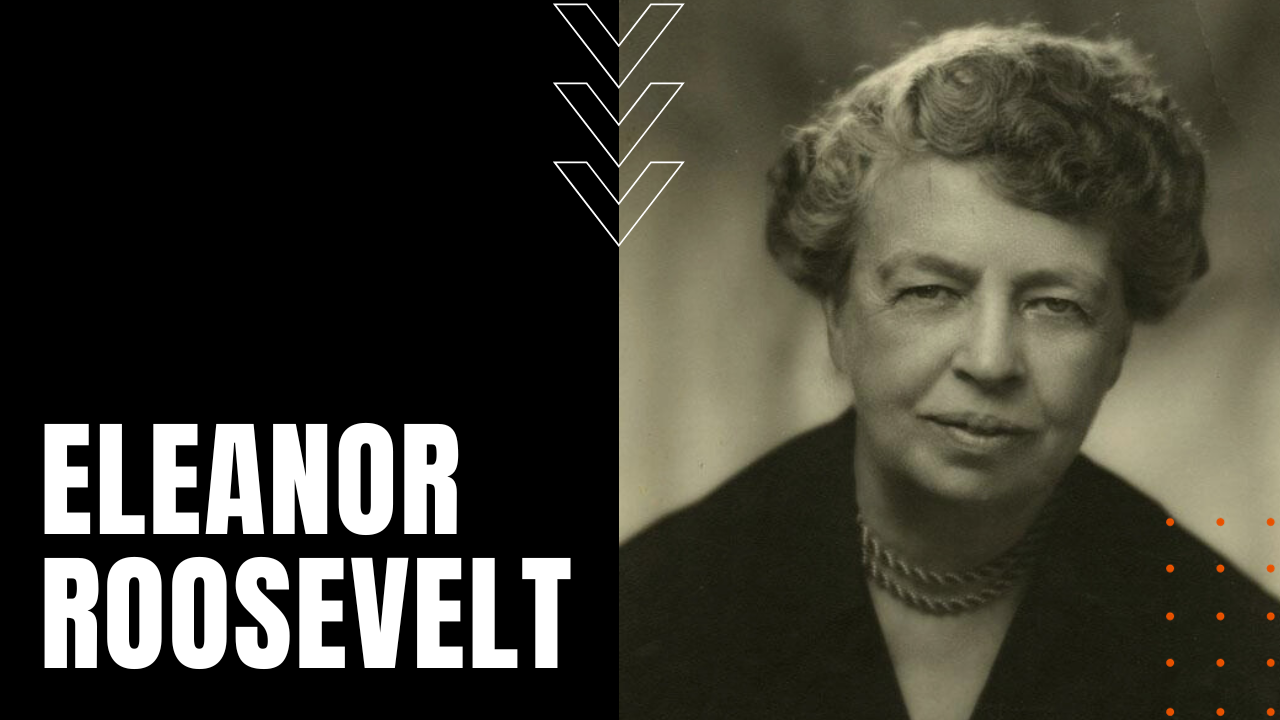Eleanor Roosevelt

Born into a wealthy family in 1884 New York City, after her mother died when Eleanor Roosevelt was six years old—followed by her alcoholic father two years later—Eleanor was raised by her grandmother in Manhattan and Tivoli New York. A serious and awkward child, Eleanor was educated by private tutors until age 15, spending the next three years at a private girls school in England, before returning stateside to marry the future four-term president of the United States, Franklin D. Roosevelt, her fifth cousin once removed.
A Fruitful Marriage
The couple would raise six children—five of whom survived into adulthood—as FDR rose first into New York politics, before his ascension to the White House in 1933. Taking office the following year, Eleanor reluctantly surrendered her active role in the American Red Cross and the New York Democratic Party, not to mention her teaching post at an exclusive Manhattan girls’ school, instead, transforming the role of first lady from a mere social hostess to an active and vocal participant in her husband’s administration, championing civil rights for African Americans, labor rights for American workers, while encouraging her husband to appoint more women into federal positions.
A Feminist at Heart
She also held hundreds of press conferences with female reporters, who were typically barred from White House press conferences, at the same time writing a syndicated newspaper column entitled “My Day,” from December 1935 until her death in 1962. Creating one of the most notable political partnerships in American presidential history, after FDR died suddenly of a cerebral hemorrhage in 1945—in the company of Eleanor’s old social secretary, Lucy Mercer; an extramarital affair that had rekindled after Eleanor threatened to leave her husband some years earlier—Eleanor continued her vocal support of the civil rights movement by supporting the anti-lynching bill, which prompted an irate Ku Klux Klan to post a $25,000 bounty on her head.
An Accomplished Author
Appointed chair of the UN’s Human Rights Committee by President Harry S. Truman, Eleanor went on to deliver her most famous speech, “The Struggle for Human Rights.” Authoring 27 books and more than 8,000 columns over the course of her lifetime, Eleanor passed away in Manhattan on November 7th, 1962 from aplastic anemia, tuberculosis and heart failure, making Eleanor Roosevelt, one of America’s greatest national treasures.
